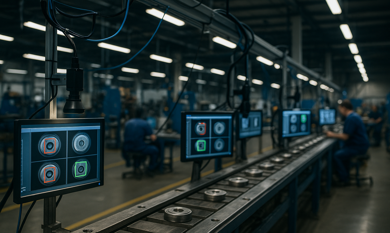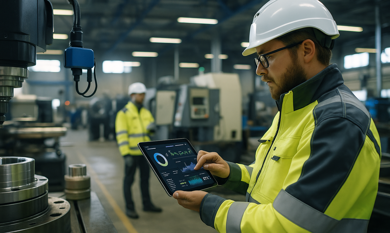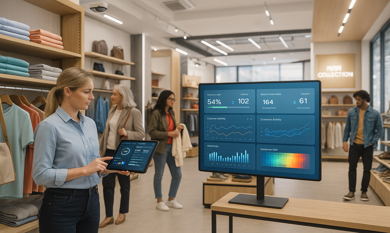In today’s health-conscious world, more people are choosing organic food. Consumers care about where their food is sourced, how it's produced, and if it’s safe from harmful additives. But ensuring this level of trust isn’t easy. Organic food often travels long distances, changes hands multiple times, and may be vulnerable to fraud or mislabelling.
This is where traceability becomes essential. Every point in the food production and delivery process can be recorded through traceability. It ensures product quality, fosters consumer trust, and supports compliance with regulations. And the technology that’s making all this more reliable and transparent is blockchain.
How Blockchain Helps in Organic Food Traceability
Blockchain works like a digital ledger. Every time a food item is processed, packed, shipped, or inspected, the information is recorded on the blockchain. These records cannot be changed, which makes the entire process trustworthy and tamper-proof.
Here’s how blockchain helps trace organic food effectively:
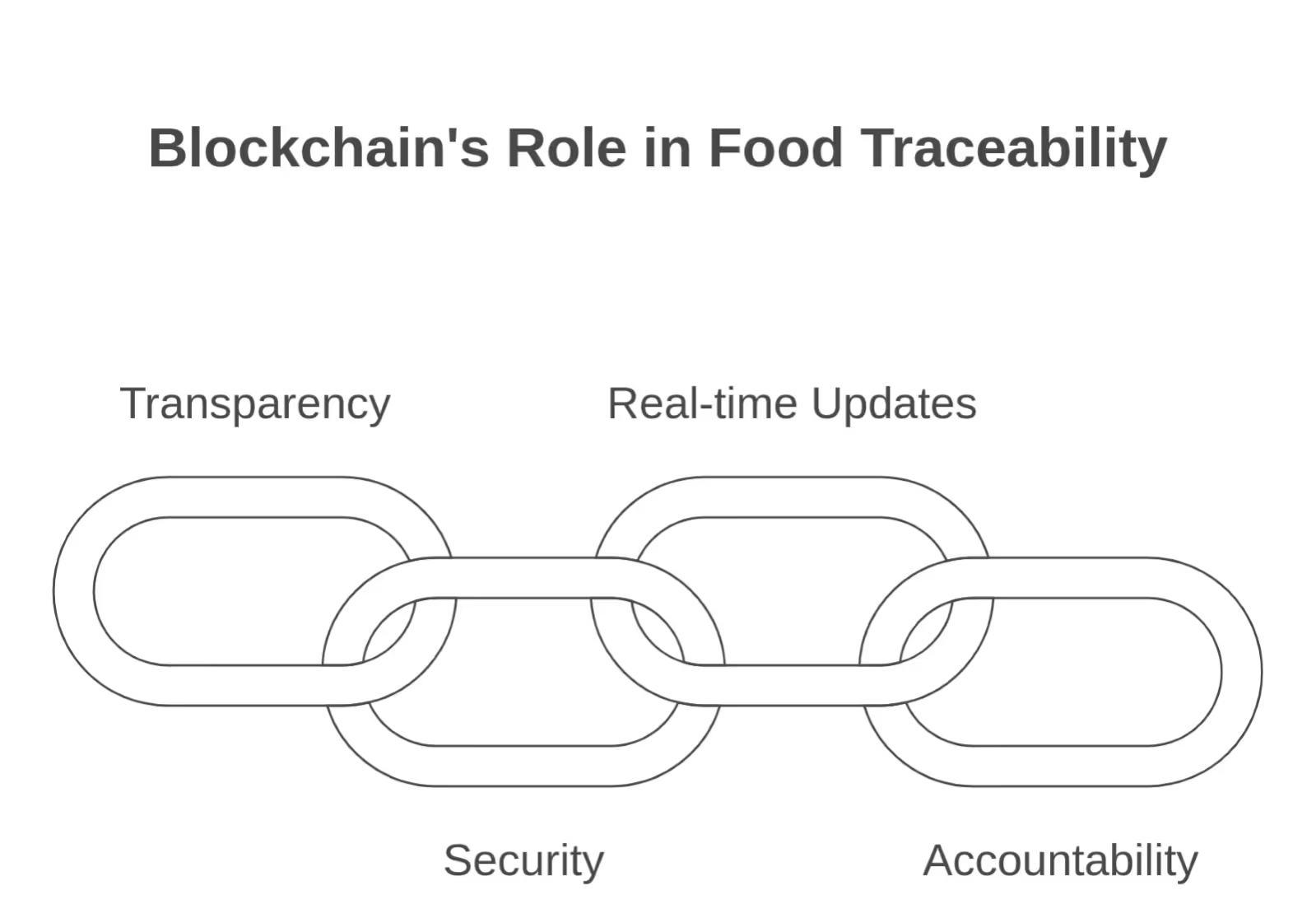
- Transparency: Every participant in the supply chain can see the same data. This ensures there’s no hidden manipulation or misinformation.
- Security: The data is encrypted and stored across a network, making it nearly impossible to alter or delete.
- Real-time updates: As the product moves, each step gets updated instantly, so retailers and consumers get real-time insights into the food’s journey.
- Accountability: If there's a problem — like contamination or mislabelling — it's easier to identify where it occurred and take quick action.
Thanks to blockchain, consumers can scan a QR code on their organic produce and instantly see where it came from, who handled it, and how it was grown.
Real-Life Examples of Blockchain in Organic Food
Let’s look at a couple of real-world examples that show how blockchain is already making a difference in food traceability:
- IBM Food Trust & Walmart
Walmart partnered with IBM to use blockchain for tracking leafy greens like spinach and lettuce. Using this system, Walmart was able to trace the origin of a batch of mangoes in just 2.2 seconds — a task that previously took nearly a week. This rapid traceability is crucial for identifying contamination sources during recalls and ensuring food safety. Read here
- Provenance & Soil Association
In the United Kingdom, Provenance and the Soil Association collaborated to monitor organic food using blockchain. Their system recorded every step, ensuring that claims like “organic” or “pesticide-free” could be independently verified. This helped gain customer trust and made the product more desirable to values-driven shoppers. See more
These examples show that blockchain is not just a buzzword — it's actively solving real problems in food safety and transparency.
Why This Matters to Businesses
For businesses dealing with organic food — whether you're a farm, a distributor, or a retailer — building consumer trust is key. Today’s buyers want proof, not promises. Blockchain offers that proof.
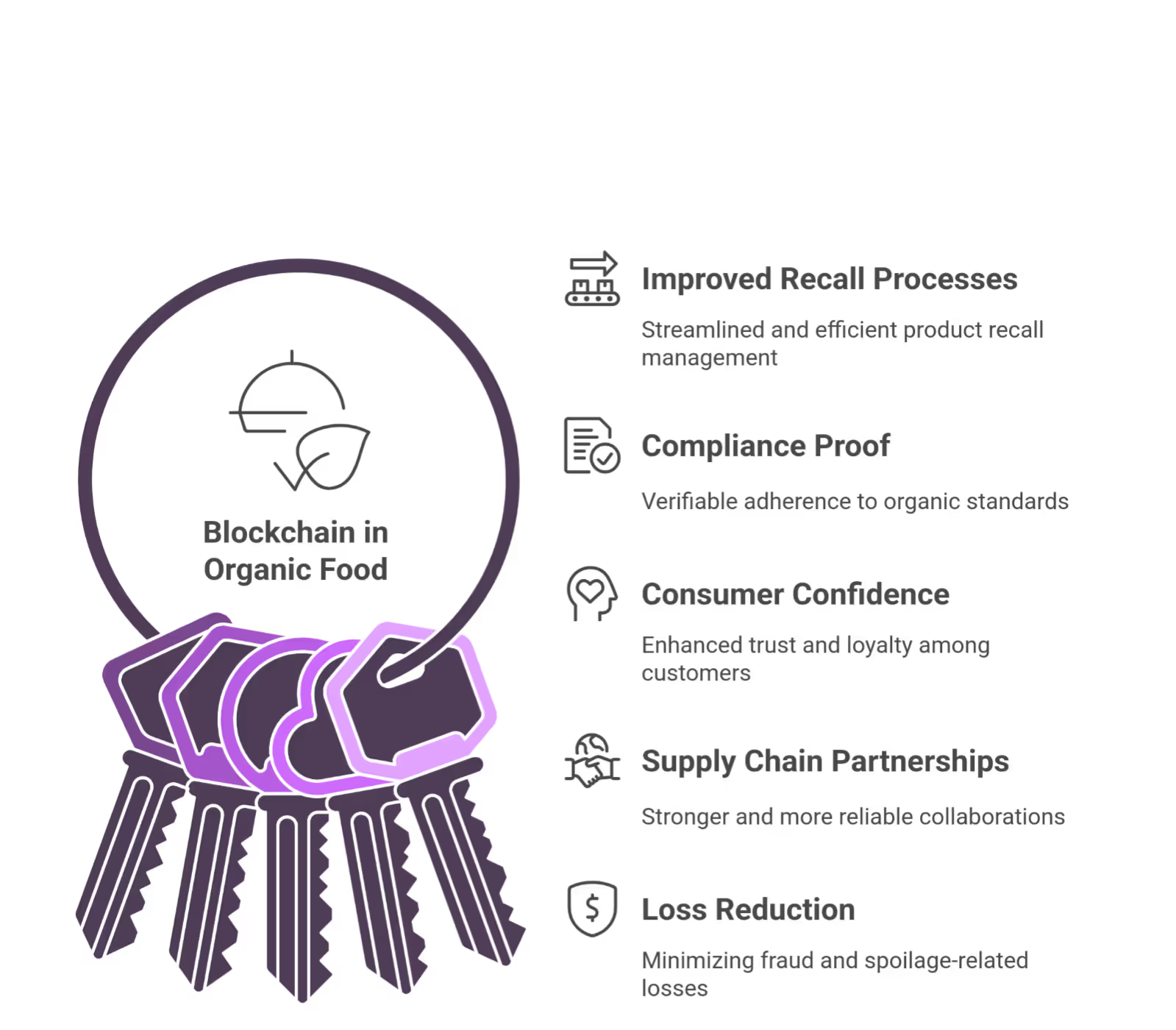
By adopting blockchain-based traceability systems, companies can:
- Improve product recall processes
- Prove compliance with organic standards
- Build consumer confidence
- Strengthen supply chain partnerships
- Reduce losses from fraud or spoilage
Even if you’re not in the food industry, the ability to offer transparency and secure data sharing can be applied across many sectors. This is why working with a custom software development company in Ahmedabad can help tailor blockchain solutions to your exact business needs.
Conclusion
Ensuring the traceability of organic products has become a business requirement. Consumers want clarity, and businesses need transparency to stay competitive and compliant. Blockchain technology provides a reliable, tamper-proof way to trace every step in the organic food journey. From improving supply chain accountability to strengthening customer trust, the benefits are both practical and powerful.
Real-world use cases already prove that blockchain can revolutionize how we track food. For businesses aiming to lead in the organic food market, this technology offers both a competitive edge and a promise of authenticity.
Get in Touch with Theta Technolabs
If you're ready to explore blockchain for your business, Theta Technolabs is here to help. Based in Ahmedabad, we specialize in delivering secure and scalable blockchain solutions for diverse industries.
We also offer a wide range of digital services including:
- Web application development
- Mobile application development
- Cloud consulting services
Whether you're in food, retail, logistics, or any other sector, our team will work with you to build systems that drive trust and efficiency.
Contact us today at sales@thetatechnolabs.com to learn how blockchain can transform your operations.
Let Theta Technolabs — your trusted blockchain development company in Ahmedabad — help you stay ahead in the digital race.
















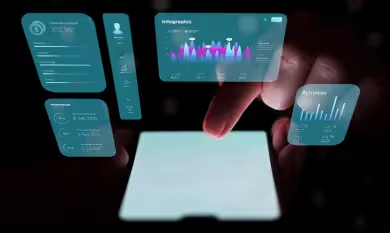

_Computer%20Vision-enabled%20Web%20and%20Mobile%20Interfaces%20for%20Mall%20Management%20in%20Dubai_Q1_In_24.avif)
_Smart%20Solutions%20for%20Healthcare_%20How%20IoT%20Development%20is%20Reshaping%20Dubai%20Hospitals_Q1_In_24.avif)
_Automated%20Checkout%20Systems.avif)
_Smart%20Manufacturing%20in%20Dubai_%20How%20AI%20is%20Driving%20Efficiency%20and%20Innovation_Q1_In_24.avif)

_Understanding%20the%20Impact%20of%20AI%20and%20Machine%20Learning%20on%20Fintech%20Web%20Apps%20in%20Dubai_Q2_24.avif)
_Explore%20the%20Best%20Cross-Platform%20App%20Development%20Frameworks%20of%202024_Q3_24.avif)


_Top%20Benefits%20of%20Cloud%20Computing%20for%20All%20Business%20Sectors_Q2_24.avif)
_Integrating%20IoT%20with%20Mobile%20Apps%20for%20Advanced%20Renewable%20Energy%20Solutions_Q2_24.avif)


_The%20Transformative%20Role%20of%20Open%20Banking%20APIs%20in%20Fintech%20for%202024_Q3_24.avif)
_Choosing%20the%20Right%20Computer%20Vision%20Development%20Partner%20in%20Ahmedabad%20for%20Construction_Q3_24.avif)
_Node.js%20and%20Blockchain_%20A%20Perfect%20Pair%20for%20Fintech%20Innovation%20in%20Dubai_Q3_24.avif)
_How%20AI%20Development%20Companies%20in%20Ahmedabad%20are%20Transforming%20the%20Shopping%20Experience_Q4_25.avif)
_How%20IoT%20Can%20Reduce%20Energy%20Costs%20in%20Smart%20Factories_Q4_25.avif)



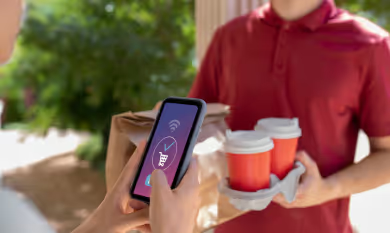


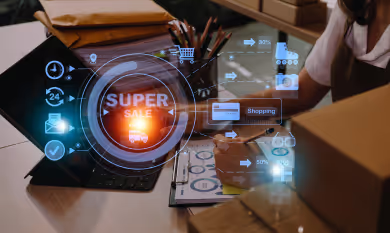







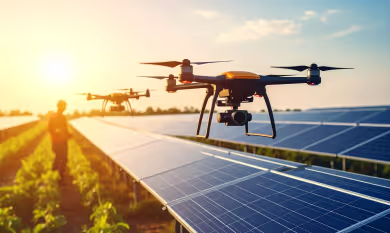


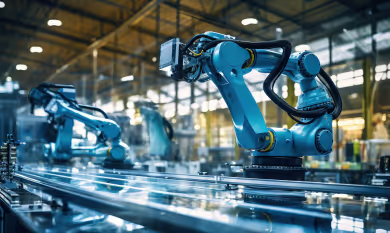



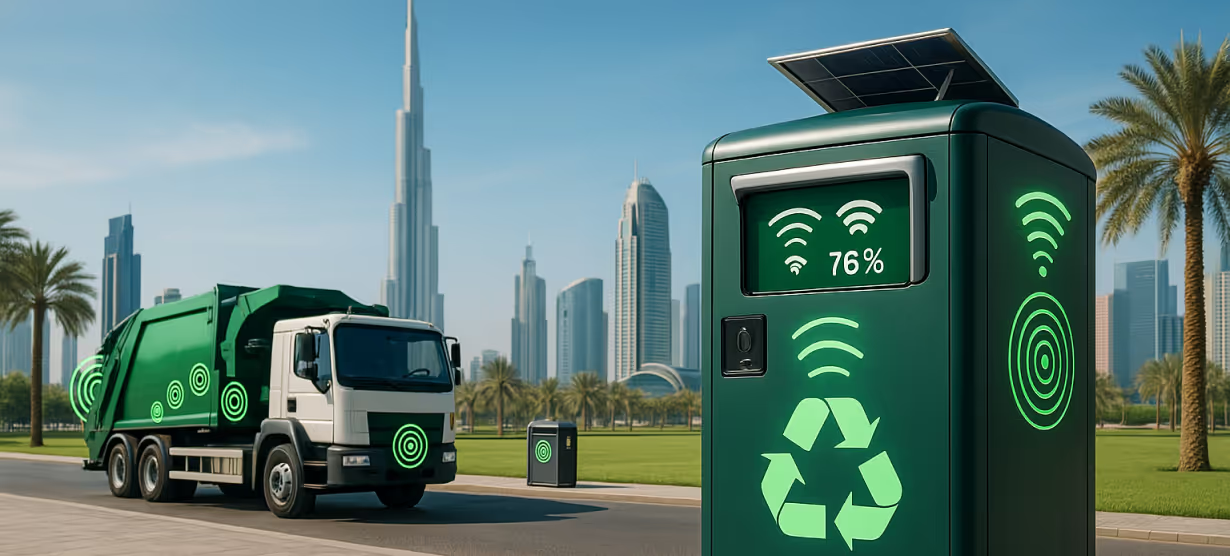

.avif)
.avif)
.avif)



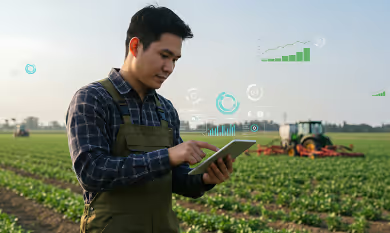

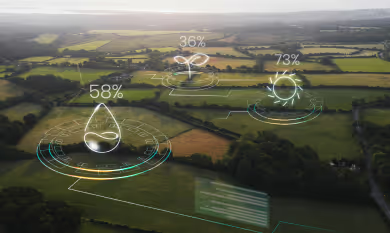

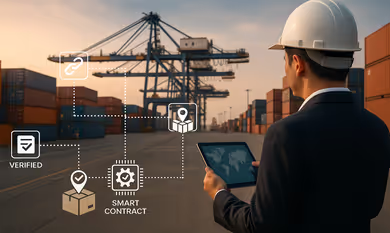
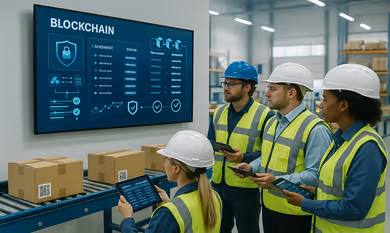
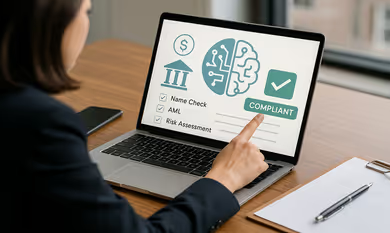



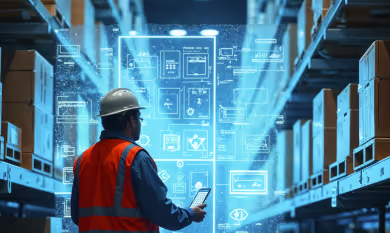



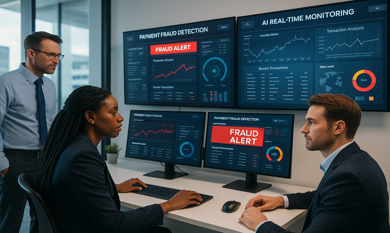


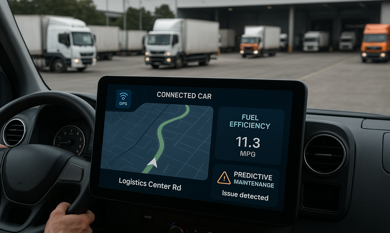
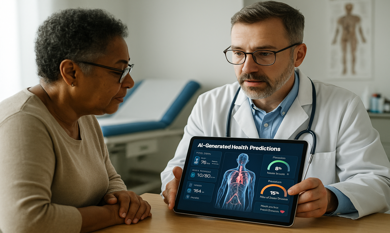



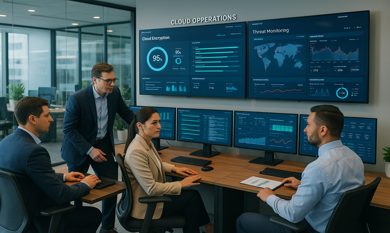

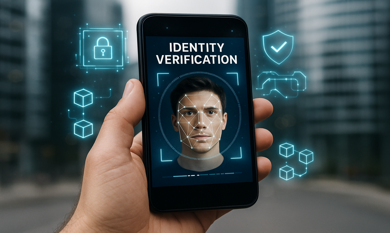

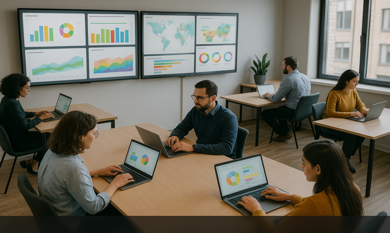


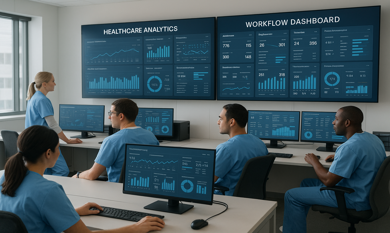
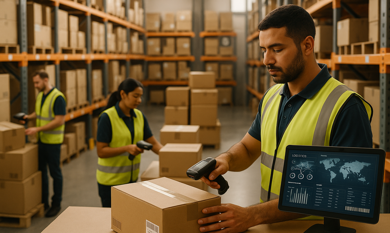



.png)


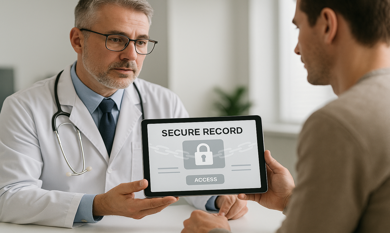


.png)
